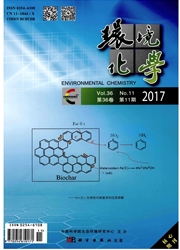

 中文摘要:
中文摘要:
本文综述了目前动物模型中全氟羧酸类和全氟磺酸类前体物质的生物转化研究.绝大多数的代谢研究以大鼠和小鼠为对象,而以鱼为对象进行的研究相对较少.氟调聚丙烯酸酯类(8∶2 FTAc)和多氟烷基磷酸酯类(PAPs)均可先代谢为氟调聚醇类(FTOHs),最终代谢为全氟羧酸类(PFCAs).全氟磺酰胺类可最终代谢为全氟磺酸类(PFSAs).目前,以8∶2氟调聚醇(8∶2 FTOH)和N-乙酰全氟辛烷磺酰氨乙醇(N-Et FOSE)为主要研究物质,且工业中使用的全氟和多氟烷基物质碳链长度逐渐变短,所以有关短链物质的代谢研究也越来越多.
 英文摘要:
英文摘要:
The study reviews the current knowledge regarding the biotransformation of precursors of perfluorinated carboxylic acids and perfluorinated alkanesulfonates in animal models. Most metabolism studies have been performed with rats and mice,relatively few studies have used fish as models. The fluorotelomer acrylates( 8 ∶ 2 FTAc) and polyfluoroalkyl phosphates( PAPs) both can degrade to form fluorotelomer alcohols,then they ultimately degrade to form perfluorinated carboxylic acids. The perfluorinated sulfamides ultimately degrade to form perfluorinated alkanesulfonates.Thus far,biotransformation studies have predominately used the 8 ∶ 2 fluorotelomer alcohol( FTOH)and N-ethyl perfluorooctane sulfonamido ethanol( N-Et FOSE) as the substrate. However,there has been an increasing number of studies investigating 6 ∶ 2 FTOH biotransformation as a result of industry's transition to shorter-chain fluorotelomer chemistry.
 同期刊论文项目
同期刊论文项目
 同项目期刊论文
同项目期刊论文
 期刊信息
期刊信息
